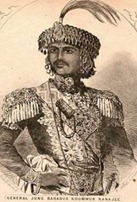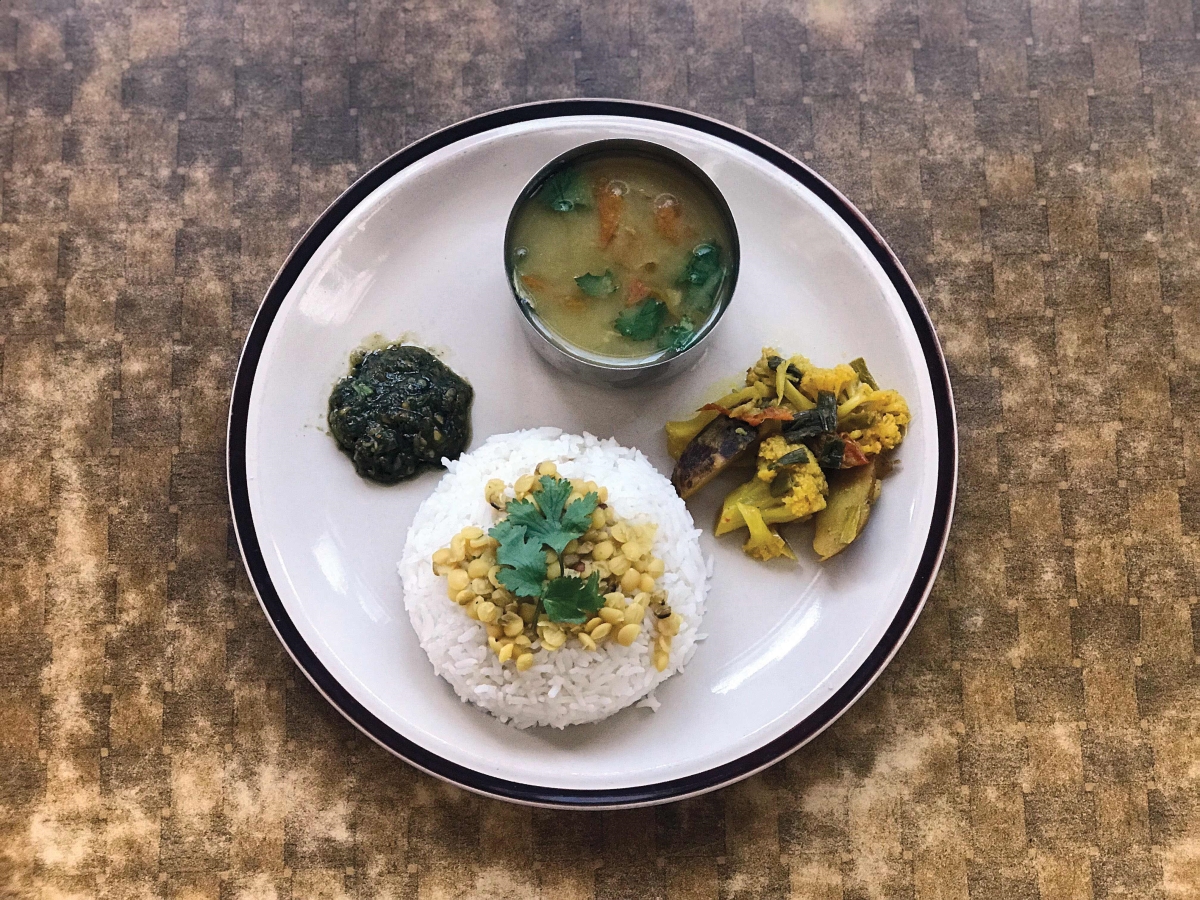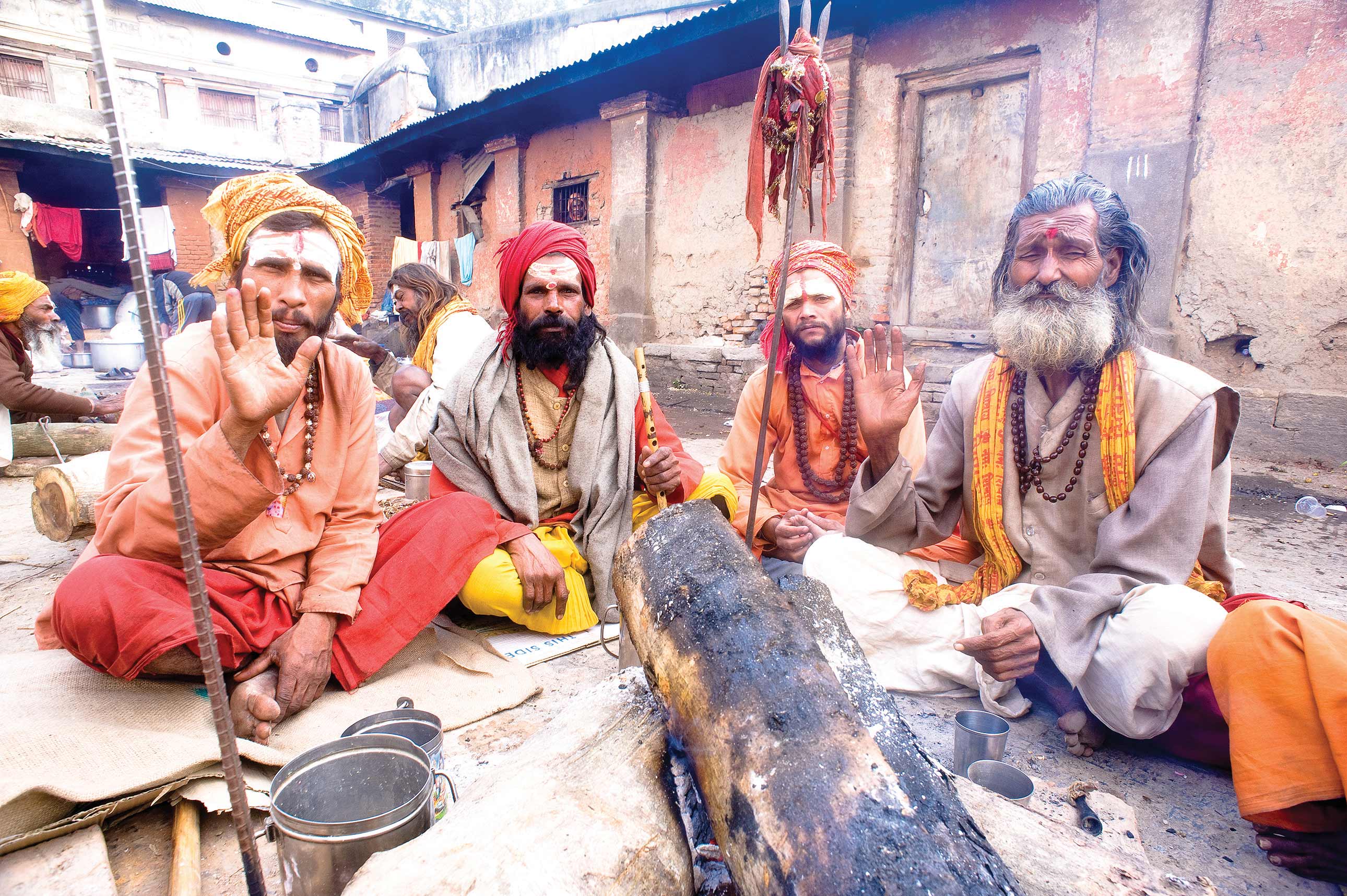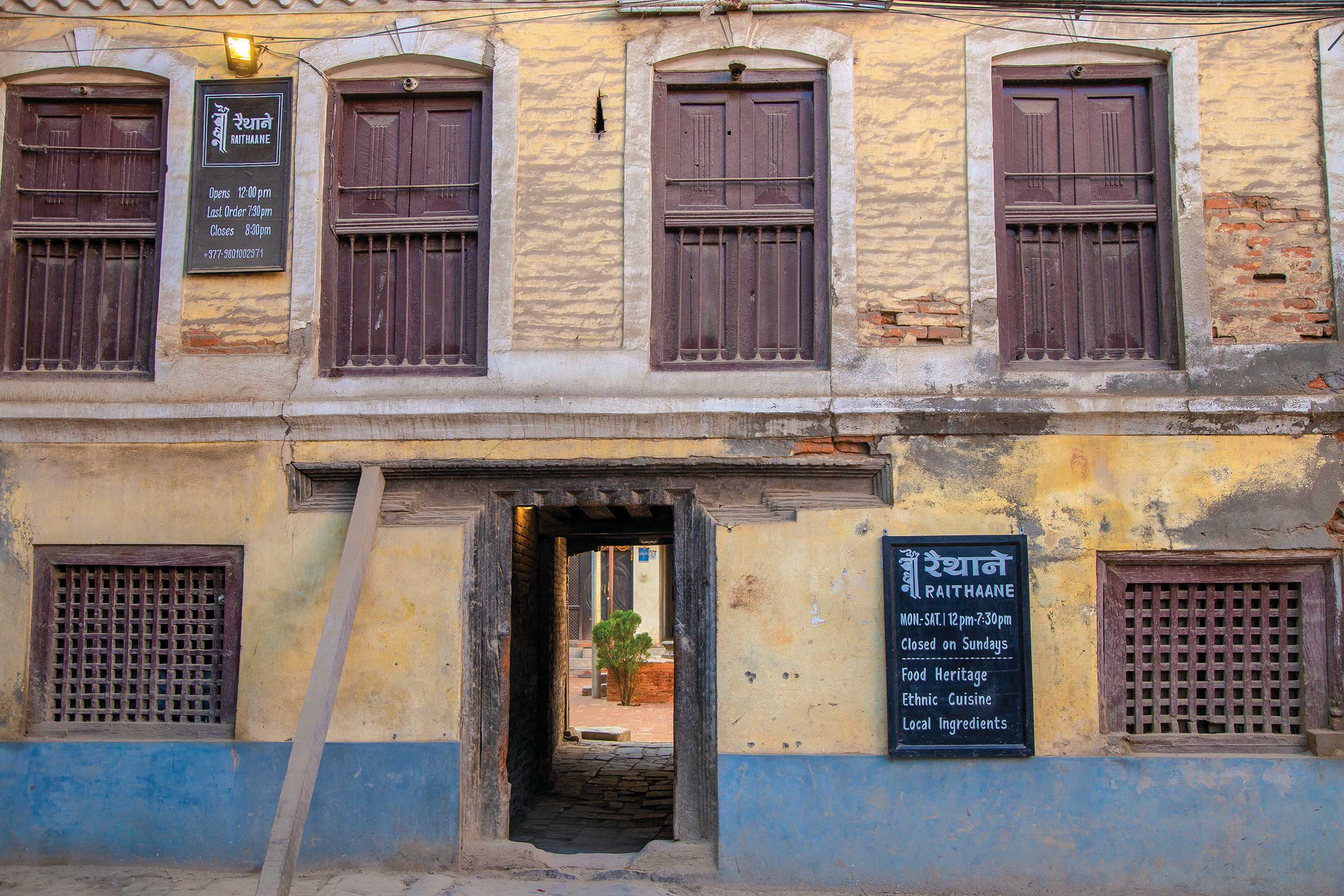
“They came, they were seen, and forthwith they conquered. To look at the lustre of their retinue, to count the diamonds which sparkled on their brown skins, to mark the gemmed turbans, the jeweled aigrets, the white bird of Paradise plumes?who would not have been forgiven for believing that the whole party might be an incarnation from the ‘Arabian Nights’... Coming in this guise, lavishing diamonds and gold, enshrined in a halo of oriental mystery, the Nepal Embassy became at once the talk of the town.”~From a London newspaper, July 24 1850.
In 1850, almost four years into his reign as the most powerful man in Nepal, Jang Bahadur Rana set out on the first Nepalese mission to Europe, where he visited England and France. The Prime Minister,along with his two youngest brothers Jagat Shamsher and Dhir Shamsher Rana, plus anentourage of officials and a covey of servants and personal attendants, arrived in Southamptonon May 14, 1850, after a month-long sea voyage from Calcutta. It was Jang Bahadur’s first time traveling away from the subcontinent.
Accounts of the momentous trip are told in several memoirs and history books, and in the English and French press of the time. What dazzled many Europeans was the splendor of the premier’s attire. But there was more to the trip than how he looked. In Europe they, he and his entourage were hosted by important officials, visited numerous places of historic, economic and military significance, participated in many state-sponsored events, and enjoyed some of the pleasures of Victorian London and NapoleonicParison their own.
What tends to have been forgotten over time are thecomplications members of the Nepalese party confronted while attempting to sustain their caste status asconscientious Hindus.
Maintaining Caste
These days we give little thought to Hindus traveling abroad, but in the mid-19th century leaving home on the Indian subcontinent and crossing the ocean?the ‘dark waters’?to foreign lands was a frightening prospect. Attention to the long-establishedrules for maintaining caste purity was taken seriously and often achieved with great difficulty.
The fear of losing casteand the rules for observing caste values are grounded in the ‘Dharma Shastras’, ancient laws that have guided Hindu religious life for more than two thousand years. The Shastras clearly banned crossing the ocean (‘samudrayana’)to visit foreign lands. Why? Because, as religious scholars have pointed out,it was nearly impossible to observe the obligatory personal worship three times a day, and other requirementswhile traveling on a ship at sea. Restrictions regarding food, drink, and commensality were especially challenging. The risk of traveling afar in the company of non-Hindus was to live in a state of perpetual pollution from the sin of ‘mleccha samparka’, politely defined as ‘mixing with foreigners’though ‘barbarians’ is a more accurate definition of ‘mleccha’.
For Hindu travelers to avoid or counteract the consequences of impurity and to rid themselves of guilt, an especially odious and lengthy routine of penance was prescribed. In its strictest form, lasting up to three years, the penitent was allowed to eat only a little food as infrequently as every fourth mealtime, to pass each daystanding and each night sitting, and to bathe morning, noon, and night. Upon return to India, a bath in the holy Ganges was considered essential to regaining caste purity. (On their return from Europe in early 1851, Jang Bahadur and his companions did just that during a stop in Benares.)
The concerns that Jang Bahadur, his two brothers and the other travelers in his party expressed about observing caste restrictions, especially while eating, are described, for example, in the memoir of their official minder, Orfeur Cavenagh. The British had assigned Captain Cavenagh as “Political Charge of a Mission from the Court of Kathmandhoo to Her Most Gracious Majesty” in London. In that capacity, he accompanied and guided Jang Bahadur and his brothers on a daily basis, sometimes interpreting for them (though they also had an official interpreter) and had every opportunity to observe how they behaved.Their efforts to maintain caste purity arealso mentioned by other authors, historians, and curious European journalists.
Unknown Rules
As an ‘old India hand’ and Hindi speaker,Capt.Cavenagh was well aware of Hindu customs. He did all he could to assure that the party had adequate accommodations, with bathing, cooking, and eating facilities that met their needs. He also mentions several occasions when their European hosts breached local convention and ‘broke the rules’ to accommodate some of the strange customs of their honoredguests.Perceval Landonwrites that theirBritish hosts, who were largely ignorant of their guests’ needs and tastes, were especially “anxious not to transgress the unknown rules of caste.”
For their part, the Nepalese did their best to avoid breaking the most fundamental customs regarding ritual pollution. Padma Jang Rana, a son of Jang Bahadur writing from his father’s personal journal,describes life aboard ship on the first leg of their sea journey out of Calcuttaas having been “arranged in a thoroughly orthodox Hindu style” –
“The Europeans [he writes] wondered at the Minister’s seclusion during mealtime, and the scrupulous care he always showed in keeping himself and his things aloof from the touch of any non-Hindu. So rigid was he in the observance of the customs of his country, and the principles of his caste, that he... never tasted anything but fruits while on board the steamer, and even then, not before placing a thick screen in front of him, to save himself from being stared at.
This is a unique feature of the Hindu character, for while Europeans feel no delicacy in taking meals in public, Hindus, especially of the higher grades, ...always take their meals in privacy.”
Padma Jang Rana points out that to Jang Bahadur the ship’s “common deck implied abominable contact with objectionable people.”Thus, during the first few days of the long voyage, until arrangements were worked out for the Nepalese servants to prepare meals onboard, all food for Jang Bahadur and the others was both cooked and eaten ashore. This Hindu character trait appeared “unintelligible to Europeans to whom our universal ‘chowka system’ is a constant puzzle.”The rule was that cooked food carried away from the ‘chowka’(the cooking place) was considered unclean, hence unfit for caste-conscious Hindus.
.jpg)
Hide the Cows
Two examples of the care the Nepalese travelers took regarding food and drink show how Hindu custom sometimes bumped uncomfortably up against European convention. For their own convenience aboard ship, the Nepalese brought cows that they alone milked (but, being considered sacred, never slaughtered for food). Shortly after boarding the P. & O. line’s steamship ‘Ripon’in Alexandria, Egypt, for crossing the Mediterranean Sea, Jang Bahadur came toCapt. Cavenagh “sadly distressed” to learn that other cows on board were killed to provide meat on the European menu. So affronted were the Nepalese at this, Jang Bahadur is said to have told Cavenagh if there was no way of stopping “this most objectionable practice..., he would immediately quit that ship and engage another.” Cavenagh averted that by arranging with the purser to carefully conceal the time and place of cow slaughter, a plan to which Jang Bahadur uncomfortably agreed.
Once that was settled, the Nepalese set up housekeeping on the‘Ripon’ for the remainder of the journey. An article in the London pressdescribingshipboardaccommodations, mentions that given“their strict notions” regarding religion, diet, bathing, and dread of contaminating the food, cooking vessels, and utensils–
“they were compelled to engage the whole of the forecabins and saloons of the Ripon, in which they fitted up cooking apparatus, which was constructed out of a large square box made of planks and paddle-floats, filled with mud and sand. The fuel they used was charcoal. Their principal food on board was poultry, kids [goat], eggs, rice and vegetables. They took in themselves at each port they touched at, what water they used.”
Dock their Tails
Another problem arose when it was found that the sheep brought on board the ‘Ripon’for the Nepalese to butcher and eat were of the European long-tailed variety, which they told Cavenagh they were forbidden to eat. To the ship’s authorities this seemed easy to make right. So, as Cavenagh tells it,out of sight and probably with a bit of jollity on the part of the crew, –
“an animal with an apparently orthodox tail was duly made over to the Nepalese party for execution. The appointed executioner was not disposed to become too inquisitive as to the origin of the shortness of the tail of the fine fat sheep destined to become the dinner of himself and his fellows. Unfortunately, however, amongst the members of the Minister’s suite was an old Kazi under a vow not to indulge in animal food for a certain period; under no circumstances, therefore, could he partake of the repast. This old gentleman, who was of rather a crabbed disposition, insisted upon being allowed to examine the sheep to satisfy himself that his brethren acted in accordance with their religious tenets. The result of his minute scrutiny established... that the animal they were about to sacrifice had originally been born with a long tail.”
Capt. Cavenagh was of the opinion that the companions of the “old Kazi,” Karbir Khatri, were prepared to ignore the docked tail and get on with cooking up a nice mutton curry. But out of respect, apparently, for the concerns of the elder gentleman they outwardly expressed great astonishment at the revelation. Or, as Cavenagh put it, with a touch of irony –
“Inwardly, I fancy, many were the curses against their friend’s officiousness. However, the requirements of religion must be obeyed. Monsieur le Mouton [with the docked tail] was at once released and bundled up stairs to join his companions and to become food for heterodox Christians instead of orthodox Hindus; whilst the suite for the rest of the voyage were obliged to content themselves with rice and flour and such like comestibles.”
After arriving in London, Cavenagh assumed Karbir Khatri must have been barred from examining what went on in the kitchen, for nothing more was heard about short-tailed sheep.

Cut the Carpet
The Nepalese party’s concern for keeping rigid standards of separation from the Europeans went well beyond what they ate, to the point of rearranging the furnishings. One London journalist described the lengths to which they went to avoid contaminating situations –
“In the matter of eating and drinking, the Nepaulese gentlemen continue to keep rigidly to their rules of faith and custom. As regards animal food, they eat mutton and goat’s-flesh .... cooked after their own fashion by their own retainers. Fruit is the only refreshment, as my readers may be aware, of which the Nepaulese will partake in the dwelling of Giaour [meaning ‘gaur’, ‘an infidel’ in Persian]; and in consuming even it, the most curiously rigid system of isolation appears to be requisite.
At a recent féte, at which all artistic and aristocratic London were present, the Nepaulese, before they sat down to their collation of peaches, nectarines, and so forth, were not only ensconced in a closed room with trusty sentinels at the door, but the carpet of the apartment in which they sat, and which was of the same piece as that which covered the floor of the adjoining chamber, was, at their request, severed at the threshold, and rolled back on either side, so as to destroy the idea of any immediate connexion or communication between themselves and the neighboring infidels.”
Don’t Drink the Water
What to drink, and to drink from, were also problematic. The Nepalese team were guests at numerous receptions and parties in England, at which they took no drink and ate nothing more than some raw fruit. In those days, as historian John Whelpton explains, Hindus of “pure caste” would not accept water from “impure” sources, which included ‘iyuropiyen’(Europeans) or‘kristan’(Christians). Impurity could be transmitted through water from ‘mlechhas’ but not by touch. Thus, while Jang Bahadur and members of his party could shake hands with their European hosts, they would not accept a glass of water from them.
Their behavior confounded no less than Queen Victoria herself. When Her Majesty met Jang Bahadur during an event at the Palace, she expressed the hope that he would make a tour through the United Kingdom beyond London before leaving the realm. Then, as Cavenagh tells it –
“His Excellency, in reply, stated that he was extremely anxious to do so, but, unfortunately, his religion offered an insuperable bar to his travelling as much as he could wish, as difficulties were experienced with respect to his securing suitable cooking utensils. Her Majesty, appearing somewhat surprised at this answer, I at once explained the peculiarities of the Hindoo faith, more especially as regards their being prohibited from making use of cooking-pots that had been rendered unclean by the touch of one of another creed or of inferior caste.”
Jang Bahadur and his brothers eventually toured a bit more of England and some of Scotland where, along the way, they encountereda drinking water problem at a railway station.According to arather high-sounding newspaper account, what happened at Castle Station wentsomething like this–
“His highness being thirsty the interpreter inquired for some water, and, in the emergency, one of the [railway station] porters hastily procured it in one of the men’s coffee cans. This not being accepted, and the porter supposing the vessel was too plebeian for his highness to use, a clean tumbler, containing the pure element, was tendered, but also solemnly rejected. In this dilemma his Highness, or Magnificence, as the splendor of his costume would warrant his being styled, caught sight of the stand-pipe and hose by which the engines are supplied with water, and supposing it to be a spring, endeavoured to find where he could dip in his own drinking-cup, and procure water unpolluted by contact with any vessel in Christian use. The whole party curiously examined the water-pipe, but of course could make nothing of it, and returned to the train with his Highness’s want unsatisfied.”
Sources: ? Orfeur Cavenagh,‘Reminiscences of an Indian Official’ (1884); ? Padma Jang Bahadur Rana,‘Life of Maharaja Sir Jung Bahadur’ (1909); ? John Whelpton, ‘Jang Bahadur in Europe: The First Nepalese Mission to the West’ (1983);? Percival Landon, ‘Nepal’ (1928); ? Purushottam S.J.B. Rana,‘Jung Bahadur Rana: The Story of His Rise and Glory’ (1998);and ? contemporaneous European newspaper accounts quoted in Whelpton’s book.









